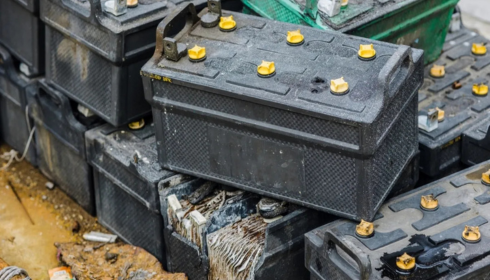As India accelerates its shift towards clean energy, the demand for reliable battery storage especially lead-acid batteries (LABs) continues to grow. From automotive and telecom to solar power and Uninterruptible Power Supply (UPS) systems, LABs remain a preferred energy storage solution for their affordability, durability, and ease of maintenance.
But there’s another side to this growth story: lead recycling. In a sector where over 85% of India’s lead consumption goes towards battery production, recycling plants in India are playing an increasingly vital role in meeting demand while reducing environmental impact.
Why Lead Recycling Matters
Unlike many metals, lead can be recycled indefinitely without any loss in performance. In India, a staggering 85–90% of lead used comes from recycling, thanks to a growing network of lead recycling companies in India.
This circular approach to lead usage offers several benefits:
- Energy savings: Recycling lead uses just a third of the energy required to produce it from raw ore.
- Cost efficiency: LABs made using recycled lead are 50–75% cheaper than lithium-ion batteries, making them ideal for large-scale, cost-sensitive applications.
- Environmental impact: Proper recycling reduces the risk of lead poisoning and contamination caused by discarded batteries.
- Sustainability: It supports a closed-loop system where batteries are collected, dismantled, smelted, and the recovered lead is reused.
Fuelling India’s Energy and Battery Landscape
With demand for lead projected to reach 2 million tonnes by FY 2030, lead-acid batteries continue to dominate sectors such as:
- Solar energy: Providing reliable storage for off-grid and rural solar installations.
- Telecom and data centres: Powering critical backup systems in an increasingly digital India.
- Automotive: Serving ignition and power needs in vehicles, particularly in the replacement market.
- Home and industrial UPS: Supporting uninterrupted power in residential and commercial setups.
Each of these sectors depends on metal recycling and robust lead recycling plants to keep operations efficient and affordable. Many scrap recycling companies in India are now diversifying into battery collection, dismantling, and smelting, enabling smoother integration of recycled lead into manufacturing supply chains.
One such player making strides in this space is Jain Metal Group, which has been instrumental in strengthening India’s formal recycling infrastructure and promoting safe, efficient recovery of lead through advanced smelting facilities.
Building a Responsible Ecosystem
India’s recycling infrastructure is expanding, with more recycling companies in India adopting best practices and operating under Central Pollution Control Board (CPCB) guidelines. However, a large portion of lead recycling still occurs in the informal sector, where unsafe practices pose significant health and environmental risks.
To realise the full potential of lead recycling in powering India’s energy future, key focus areas include:
- Strengthening collection networks
- Investing in cleaner, safer recycling technologies
- Formalising the unorganised sector
- Driving awareness around battery disposal and reuse
By fuelling key industries through sustainable practices, lead recycling supports India’s ambitions in renewable energy, mobility, and infrastructure. As the country charts its course towards a greener economy, secondary lead will continue to be a quiet yet powerful catalyst, bridging demand with responsibility.

